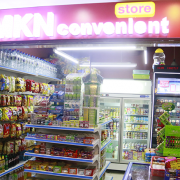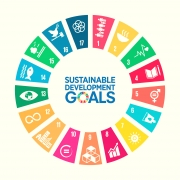A Matter of Convenience?
As Human Beings have progressed, throughout the world ‘convenience’ has become a powerful driving force for us. From fast food (deliveries or drive-throughs) to high-speed wifi, from disposable items to cell-phones, and from transportation to readily and cheaply available cutlery for parties. In all walks of life, we look for convenient high efficiency solutions.

However, in our rush to get things done in the most convenient and efficient manner at the time, have we ever stopped to think about the long term viability of those options? Do we ever take a moment and consider that what we think is convenient in the moment might cause major inconveniences (the Great Pacific Garbage Patch; overall Climate Change etc.) in the longer run?
This piece is more of a question for my fellow citizens of the world rather than an article that provides any new information. We have ravaged the world for our convenience and either produced nearly permanent materials or done almost irreversible damage to the environment. The invention and widespread use of plastics, and extreme scale of deforestation for various purposes jump to mind with that description. We all know their uses and how these practices are affecting our world.
Is it all worth it?

We are creatures that are able to learn from history. We can study patterns, and to a very accurate degree, predict the future. We are blessed with both hindsight and foresight. The best of us are known for having a vision beyond immediate outcomes. How is it then, I ask, that we have failed to see the longer term implications of our actions for short term gains?
For the last few months, I have wondered, if the inventors of plastic ever thought about how it would be removed from circulation once used? Did they not realize that once the plastic was used, considering that it is virtually indestructible under normal circumstances, that it will collect somewhere? Drawing from basic storage space limitations and extrapolating to a larger scale, did it not occur to them that we might run out of space in the future? Or did they think the world had an infinite area?
Similarly, for those who cut down trees at a faster rate than they are able to grow: Do they genuinely not understand the basic math and realize that if they continue the practice we will eventually run out of trees?
Or do we simply not care?

Learning from our history, I have reason to believe that those that came before us understood these concepts (I am trying to not sound frustrated here). From cavemen, to the first farmers, to the ones living in the various ages, all the way through the industrial revolution up till now all of us understand these simple concepts. The cavemen used to store enough food, and knew how and when to ration it and consume it slowly over-time in order for it to last long enough till they obtained more. Similarly, farmers understand the concept of fallowing a piece of land to allow it to recover.
So when did we begin to ignore these basic ideas?
Is the convenience of obtaining plastic cutlery or carrying items in a plastic bag really so important that we are willing to ignore the piles upon piles of post-consumer used plastic in landfills? Maybe there was once a time when those before us could not see the immediate results such as blockage of drains or the deaths of animals due to plastic bags, but we can see them now. Are we still going to ignore what we see with our own eyes for our convenience in the moment.. And leave the mess for the coming generations?
It is now time to forego short term convenience at a hidden cost and keep the longer run in mind. This means that we will need to make some behavior changes. However, trust me, when I say, its okay. These changes in behavior will not make our lives much harder. I am positive that we can come up with just as convenient, yet sustainable solutions. And soon, these sustainable practices will become habitual. But most importantly we need to understand now that the future lies in sustainability and it’s not just a matter of convenience.












Leave a Reply
Want to join the discussion?Feel free to contribute!